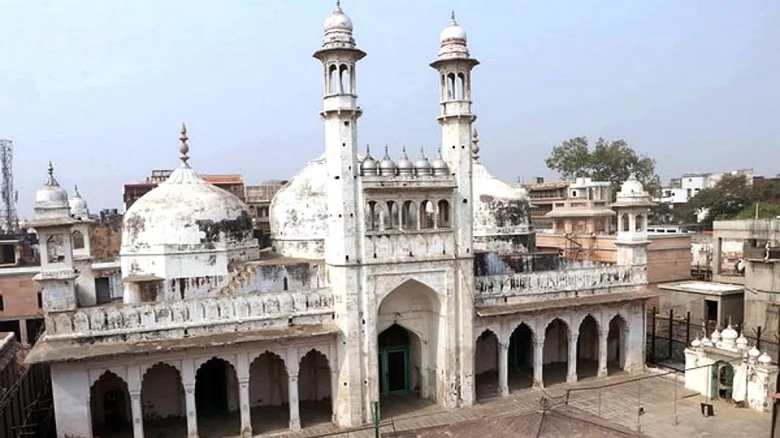National

The lock of the Ram Mandir was unlocked for worship by first judge JM Pandey, a resident of Gorakhpur.
Digital Desk: A Varanasi court on Wednesday allowed Hindu devotees to pray within the Gyanvapi mosque's locked basement. Hindu devotees may now pray at "Vyas Ka Tekhana," a restricted space within the Gyanvapi mosque in Varanasi, in accordance with the court's ruling.
During its earlier-in-the-day hearing, the court also requested the Shri Kashi Vishwanath Temple Trust to designate a pujari for the ceremony and instructed the district administration to organize the necessary logistics for the devotees to execute the "puja."
The lawyer for the Hindu side, Vishnu Shankar Jain, told reporters, "Hindu side allowed to offer prayers at 'Vyas Ka Tekhana'. The District Administration has seven days to prepare plans. Now, puja will be allowed for everyone."
Additionally, Vishnu Shankar Jain compared the Varanasi court's ruling to a 1983 ruling made by Justice KM Mohan, who mandated the unlocking of the closed doors of the then-disputed Ram Mandir-Babri Masjid sites.
Vishnu Jain, an advocate, remarked, "I see Varanasi court's recent order as historic as the order given by Justice Krishna Mohan Pandey in 1983, who ordered the opening of locks of the Ram Mandir in Ayodhya."
The lock of the Ram Mandir was unlocked for worship by first judge JM Pandey, a resident of Gorakhpur.
The chair of the Islamic Centre of India, Maulana Khalid Rasheed, expressed his disappointment with the Varanasi court judgment while also stating that there is still an option to take the case to an upper court.
A few days before, a group of four female petitioners moved the Supreme Court in Varanasi, asking for an excavation and a survey of the mosque's sealed portion. The argument was brought before the highest court when the Archaeological Survey of India (ASI) study, as per the Hindu side, revealed that a large Hindu temple existed before the construction of the Gyanvapi mosque in Varanasi.
The women pleaded that by excavating the entire sealed chamber and utilizing other scientific techniques, along with the removal of artificial/modern walls and floors surrounding it, the precise nature of the "Shivling" might be ascertained.
"It is submitted that for a proper and effective investigation, it is necessary that the ASI may be directed to undertake necessary excavation and use other scientific methods around the Shivlingam (being claimed by Muslims as a fountain) for determining the nature of Shivlingam and associated features without causing any damage to the object after removing artificial/modern walls/floors surrounding the Shivlingam," the plea stated.
A number of Hindu activists challenge the existence of a temple that once existed near the location of the disputed Gyanvapi mosque. The Muslim side rejects this claim, claiming the temple was destroyed in the 17th century on the orders of Mughal emperor Aurangzeb
Leave A Comment